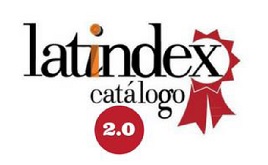Income tax on cryptocurrency profits: analysis and regulatory proposal in Peru
DOI:
https://doi.org/10.53641/q3zx8s98Keywords:
Cryptocurrencies, gain, income tax, taxationAbstract
Until July 2024, the global cryptocurrency market approached 2.5 trillion US dollars, representing an increase of more than 100% over the previous year, which generated significant profits for residents of various parts of the world, including Peru. The Income Tax legislation, in force since the 1930s, did not expressly contemplate the taxation of profits obtained from the use of cryptocurrencies, causing uncertainty and affecting taxpayers with fiscal contingencies for omitted taxes, fines and interest; in addition to harming the State with the loss of revenue. The objective of this research was to determine whether the profits obtained from cryptocurrencies are subject to income tax and to establish the corresponding tax treatment according to the type of income obtained, as well as to formulate a regulatory proposal. The research, of a basic and descriptive nature, sought to develop a fundamental understanding of the principles and regulations governing the taxation of cryptocurrencies in the Peruvian context, providing a theoretical basis for future practical and policy applications. Based on the analysis of current regulations and their practical application, recommendations were developed to improve the taxation of profits generated by cryptocurrencies in Peru. The results indicated that these gains are taxed with the Income Tax as income generated by cryptocurrencies in Peru.
Downloads
References
Bravo, J. (2014). La contabilidad como fuente del derecho. En IPIDET, II Foro de Tributación y Contabilidad. Precios de Transferencia y NIIF (pp. 249-256). Thomson Reuters.
Bravo, J. (2023). Conversatorio: La SUNAT y la tributación de las criptomonedas. [Video] Youtube.
Campos-Gutiérrez, D. V., Moreno-Neri, J. de J., & Obregón-Angulo, M. del M. (2019). Implicaciones Fiscales de las Operaciones con Criptomonedas en México. Vinculatégica EFAN, 5(2), 978–989.
Centro Interamericano de Administraciones Tributarias (CIAT). (2022). Manual sobre Control de la Planeación Tributaria Internacional. 5 herramientas de contención de la planeación tributaria internacional. 5.7. Tributación de las criptomonedas. CIAT ORG.
Comité de Interpretaciones de las Normas Internacionales de Información Financiera (CINIIF) (2019). Decisión de agenda de junio de 2019.
Eusebio, N. (2021). Tratamiento contable de las criptomonedas y su efecto tributario en el Perú, año 2021 [Tesis de licenciatura, Universidad de San Martín Porres]. Repositorio de USMP.
Grupo de Acción Financiera Internacional (GAFI). (2012-2023). International Standards on Combating Money Laundering and the Financing of Terrorism and Proliferation [Normas internacionales para la lucha contra el lavado de dinero y el financiamiento del terrorismo y su proliferación]. FATF.
Gutan, V., & Zugravu, G. A. (2024). Development considerations and opportunities a wine tourism – the case study of the state enterprise quality wines industrial complex. Journal Of Research on Trade, Management and Economic Development, 1(21), 22–38.
Hernández A., Sastre-Hernández B., Jorge-Vazquez J. & Náñez S., (2024). Cryptocurrencies, Tax Ignorance and Tax Noncompliance in Direct Taxation: Spanish Empirical Evidence. Economies, 12(3), pp. 1-25.
Ministerio de Economía y Finanzas. (2004). Texto Único Ordenado de la Ley del Impuesto a la Renta aprobado por Decreto Supremo N° 179-2004-EF y su Reglamento aprobado por Texto Único Ordenado del Decreto Supremo N° 054-99-EF. Diario Oficial El Peruano.
Organización para la Cooperación y el Desarrollo Económicos (OCDE). (2020). Taxing Virtual Currencies: An Overview of Tax Treatments an Emerging Tax Policy Issues [Fiscalidad de las monedas virtuales: Una visión general de los tratamientos fiscales y las nuevas cuestiones de política fiscal.] OECD Publishing.
Organización para la Cooperación y el Desarrollo Económicos. (2023). International Standards for Automatic Exchange of Information in Tax Matters: Crypto-Asset Reporting Framework and 2023 update to the Common Reporting Standard [Normas internacionales para el intercambio automático de información en materia tributaria: Estructura del reporte sobre criptoactivos y actualización del 2023 a las normas sobre el reporte común]. OECD Publishing.
PricewaterhouseCoopers.(2024). PwC Annual Global Crypto Tax Reporting 2024.
Rendon-Ordóñez, R. (2018). El Trading como alternativa de Trabajo. Revista Contexto, 7, 1-4.
Superintendencia Nacional de Aduanas y de Administración Tributaria (SUNAT). (2021) Informe N° 000101-2021-SUNAT/7T0000.
Superintendencia Nacional de Aduanas y de Administración Tributaria (SUNAT). (2002) Informe N° 000094-2002-SUNAT/K0000.
Tribunal Fiscal del Perú. (2002) Resolución del Tribunal Fiscal N° 2424-5-2002.
Zamora, S. (2023). Decisiones de Agenda sobre la Tenencia de Criptomonedas – ¿Qué Norma NIIF se aplica a la tenencia de criptomonedas? GLENIF- GLASS.
Downloads
Published
Issue
Section
License
Copyright (c) 2025 Alfredo Rubén Saavedra Rodríguez

This work is licensed under a Creative Commons Attribution 4.0 International License.









